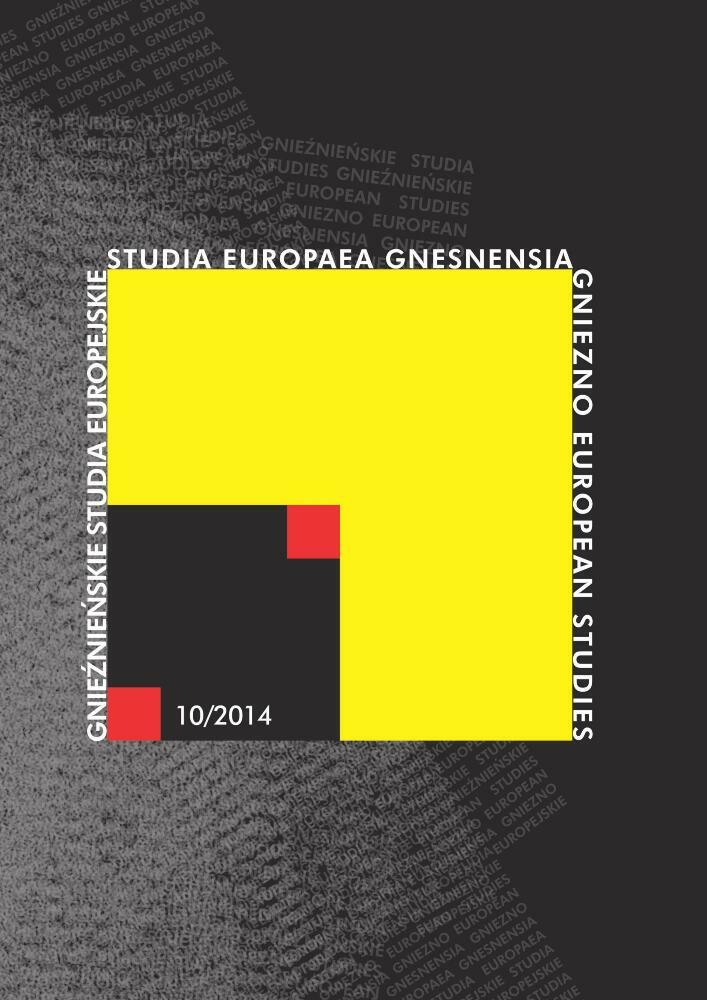Abstrakt
The classical perception of French absolutism, which so far has been identified with the system of powerful rule of the monarch with only theoretical limitations, should be subject to revision. A reinterpretation of the manner of exercising power is inevitable, especially having adopted the approach where absolutist theory is confronted with the practice of rule. Such a perspective reveals practical limitations of the monarch’s power, which obstruct a full performance of prerogatives arising from the theory of absolutist rule. !e interests of historians in the issues relating to the functioning of a state yielded a new approach to Louis’ XIV absolutism, while the vast body of pertinent works creates a situation where it is easy to lose one’s bearings in the maze of equivocal answers. Through a brief summary of the major themes in conducted studies, the article aims to demonstrate the complexity of the problem that French absolutism represents todayBibliografia
Antoine M., Les remontrances des cours soupérieures sous le règne de Louis XIV (1673–1715), Bibliothèque de l’École des chartes 151(1), 1993, s. 87–122.
Aubert G., Introduction, [w:] G. Aubert, O. Chaline, Les parlements de Louis XIV: opposition, coopération, autonomisation? Actes du colloque de Rennes, 13–15 novembre 2008, Rennes 2010, s. 7–15.
Baszkiewicz J., Francja nowożytna. Szkice z historii wieków XVII–XX, Poznań 2002.
Baszkiewicz J., Francuski absolutyzm XVII stulecia, [w:] A. Mączak (red.), Europa i świat w początkach epoki nowożytnej, 2, Ideologie, kryzysy, konflikty, Warszawa 1992, s. 219–252.
Baszkiewicz J., Henryk IV: absolutyzm barokowy, [w:] H. Olszewski (red.), Państwo. Rewolucja. Kultura polityczna, Poznań 2009, s. 423–443.
Baszkiewicz J., Historia Francji, Wrocław 1995.
Baszkiewicz J., Powszechna historia ustrojów państwowych, Gdańsk 1998.
Bayard F., Le monde des Financiers au XVIIe siècle, Paris 1988, cyt. za: L. Bély, La France au XVIIe siècle: puissance de l’État, contrôle de la société, Paris 2009.
Béquin K., Louis XIV et l’aristocratie: coup de majésté ou retour à la tradition?, Histoire, Économie et Société 19, 2000, s. 497–512.
Bercé Y.M., La naissance dramatique de l’absolutisme, Paris 1994.
Bercé Y.M., Le rôle des États généraux dans le gouvernement du royaume (XVIe et XVIIe s.), Comptes-rendus des séances de l’Académie des Inscriptions et Belles-Lettres 4, 2004, s. 1223.
Blanqui Ch., Les institutions de la France des Bourbons (1589–1789), Paris 2003.
Bloch M., Królowie cudotwórcy: studium na temat nadprzyrodzonego charakteru przypisywanego władzy królewskiej zwłaszcza we Francji i Anglii, Warszawa 1998.
Bluche F., Absolutisme, [w:] idem (red.), Dictionnaire du Grand Siècle, Paris 2005.
Bodin J., Sześć Ksiąg o Rzeczypospolitej, Warszawa 1958.
Bossuet J.B., Politique tirée des propres paroles de l’Écriture Sainte, Paris 1709.
Burke P., Fabrykacja Ludwika XIV, Warszawa 2011.
Chateaubriand de F.R., Essai historique, politique et moral, sur les révolutions anciennes et modernes, considérées dans leurs rapports avec la Révolution Française, [w:] Oeuvres complètes de M. le Vicomte de Chateaubriand, membre de l’Académie Françoise, 1, Paris 1836.
Cornette J., L’histoire au travail. Le nouveau „Siècle de Louis XIV”: un bilan historiographique depuis vingt ans (1980–2000), Histoire, Économie et Société 19, 4, 2000, s. 561–605, 607–620.
Cornette J., Le roi de guerre. Essai sur la souveraineté dans la France du Grand Siècle, Paris 2010.
Cosanday F., Descimon R., Absolutisme en France. Histoire et historiographie, Paris 2002.
Cottret M., Absolutisme, [w:] L. Bély (red.), Dictionnaire de l’Ancien Régime: Royaume de France XVIe–XVIIIe siècle, Paris 2010, s. 8–9.
Dessert D., Argent, pouvoir et société au Grand Siècle, Paris 1984.
Dessert D., La Royale. Vaisseaux et marins du Roi-Soleil, Paris 1996.
Dessert D., Le Royaume de Monsieur Colbert (1661–1683), Paris 2007.
Drévillon H., Les rois absolus (1630–1715), Paris 2011.
Hanley-Madden S., L’idéologie constitutionnelle en France: le lit de justice, Annales. Économies, Sociétés, Civilisations 1, 1982, s. 32–63.
Jouanna A., Un pouvoir provincial: les États de Laguedoc, [w:] M.L. Legay (red.), L’invention de la décentralisation: noblesse et pouvoirs intermédiaires en France et en Europe XVIIe–XIXe siècle, Paris 2009, s. 115–126.
Lavisse E., Louis XIV, 1–2, Paris 1978.
Louis XIV, Mémoires pour l’instruction du Dauphin, [w:] J. Cornette (red.), Louis XIV, Mémoires suivis de Manière de montrer les jardins de Versailles, Paris 2007.
Magdziarz W.S., Ludwik XIV, Wrocław 2004.
Mao le C., „Tout à présent est soumis aux ordres du roi?” La question des remontrances au parlement de Bordeaux au temps de Louis XIV, [w:] G. Aubert, O. Chaline (red.), Les parlements de Louis XIV: opposition, coopération, autonomisation? Actes du colloque de Rennes, 13–15 novembre 2008, Rennes 2010, s. 49–65.
Nassiet M., La France au XVIIe siècle. Société, politique, cultures, Paris 2006.
Petitƒls J.Ch., Louis XIV, Paris 1995.
Pugacewicz I.H., Moderatorzy rządów absolutnych we Francji, [w:] M. Kopczyński, W. Tygielski, Rzeczpospolita–Europa — XVI–XVIII wiek: próba konfrontacji, Warszawa 1999, s. 41–48.
Ranum O., La Fronde, Paris 1995.
Richet D., La monarchie au travail sur elle-même, [w:] K.M. Baker (red.), The French Revolution and the creation of modern Political Culture: the Political Culture of the Old Regime, 1, New York 1987, s. 25–39.
Rowlands G., The Dynastic State and the Army under Louis XIV: Royal Service and Private Interests, 1661–1701, Cambridge 2002.
Sarmant T., Stoll M., Régner et gouverner: Louis XIV et ses ministres, Paris 2010.
Serwański M., Czy Francja Ludwika XIV była monarchią absolutną?, [w:] J. Dobosz, D. Konieczka-Śliwińska (red.), Powtórka przed… III spotkania z historią dla uczniów szkół ponadgimnazjalnych, Poznań 2001, s. 41–52.
Serwański M., Historia powszechna. Wiek XVI–XVIII, Poznań 2009.
Swann J., Coopération, oppositon ou autonomie? Le parlament de Dijon, les états de Bourgogne et Louis XIV, [w:] G. Aubert, O. Chaline (red.), Les parlements de Louis XIV: opposition, coopération, autonomisation? Actes du colloque de Rennes, 13–15 novembre 2008, Rennes 2010, s. 117–132.
